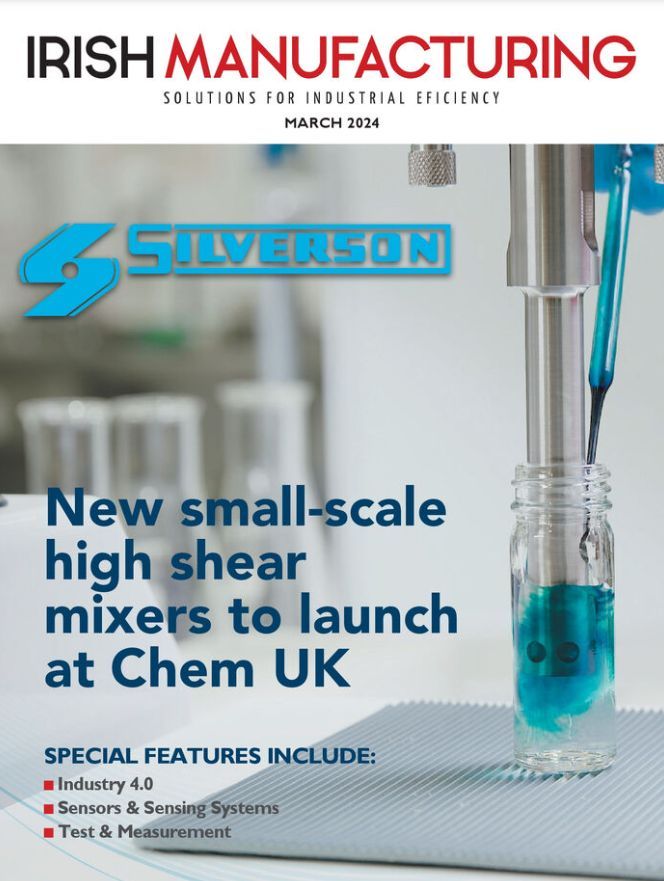 Plastic, especially single-use plastic, has been in the spotlight of late as consumers become more mindful of the environmental impact of plastic and opt to reduce their use of unsustainable plastic materials.
Plastic, especially single-use plastic, has been in the spotlight of late as consumers become more mindful of the environmental impact of plastic and opt to reduce their use of unsustainable plastic materials.
As the plastic-free movement gains momentum, manufacturers are under increasing pressure to produce packaging materials consummate with new EU legislation and, to satisfy consumer demand.
Plastic packaging has been and, shall continue to be an important constituent in maintaining the lifecycle of a product, especially food and perishable items. As such, manufacturers are now turning to recycled materials as a packaging resource to combat the environmental backlash of single-use packaging.
Historically the quality and consistency of recycled materials meant manufacturers were reluctant to consider recycled plastics as a viable material source, but recent research and development within the industry has resulted in a growing supply of fit-for-purpose raw materials that can be used within moulding applications, without any loss of quality or durability – the difference between the properties of virgin, versus recycled materials, is proven to be minimal.
Recycled plastics are extremely versatile and, can be manipulated in many ways during the production/moulding process. They can be blown, injected or Thermo moulded. The cost of sourcing recycled plastic pellets (raw material) for use within the moulding process can be some 10-15% lower than virgin plastic materials, consideration for manufacturers surely, from a cost-saving perspective? There are also energy savings that can be achieved by using recycled materials in plastic moulding applications. It is estimated that six times less energy is required to process recycled resin when compared to virgin resin.
Plastics are a finite and valuable resource – a packaging material of convenience that has become embedded in our everyday lives. But, now as the tables start to turn and consumers demand recycled/sustainable packaging around their products, how are manufacturers adapting their operational processes to meet demand?
The plastics industry has evolved into the target market for robot manufacturers over the years, as businesses look to compete on a global scale and expand into new markets. One key consideration has been to address productivity, primarily through materials handling. Poised to handle even the most demanding of tasks, robotics can provide several benefits.
Downtime is eradicated within an automated process, especially so when we consider hot or fragile parts. Robots don’t need to wait for components to cool before handling them, and fragility can be addressed using the task-specific end of arm tooling. Trimming, drilling, deflashing and degating tasks can also be undertaken by robotics, reducing cycle time and removing repetitive un-ergonomic tasks from operators – plastic moulding, as a process, is highly repetitive and part reliability and consistency is imperative to the quality of the finished item, especially so where high volumes are involved.
Waste is also a key consideration within a plastic moulding environment. Automated moulding programs are much more precise, reducing the amount of waste material left over after a cycle. While this waste plastic can be recycled, it can slow the production cycle, and eliminating it helps maintain production efficiency.
Whilst robots provide both sustainability and energy efficiencies, how are recycled resins managed within the moulding machinery, before interacting with the robots at the end of the line? Let’s consider the health and safety aspects of the plastic moulding process and the implantation of automated robotics within.
From a plastic injection moulding perspective, there are several aspects of the process that do present risks, mainly surrounding the manual handling of materials, pre mould, involving the insertion of melted plastic into a mould cavity and the bi-products that can be created as a result.
Manual handling can include filling hoppers and moving moulded goods or baled waste. A product’s weight and size and shape of the materials being handled can make manual handling hazardous. These issues, however, can be addressed through the introduction of automated robotics. Operators who would historically have been tasked with undertaking these activities, become robot programmers.
Some machines can cause high levels of noise and, even limited exposure to high noise levels can cause temporary damage to one’s hearing. Taking a human away from such an unpleasant environment and replacing them with a robot reduces such risks, without compromising operational throughput.
Plastics manufacturer can often involve chemicals as part of the process, often created as a by-product, in the form of fumes. Noxious fumes can make certain tasks unhospitable for humans. But for robots, there is no impact on health, or performance.
Demand for recycled plastic in packaging is increasing as companies pledge to reduce the environmental impact of their packaging. By automating the moulding process, manufacturers can address the supply versus demand balance and, utilise robotics within delicate handling tasks to maintain product integrity and boost productivity.
KUKA UK System Partner PC Moulding & Automation specialise in the automation of injecting moulding. Projects range from the full design and implementation of an entire automation cell incorporating a KUKA 6 axis robot, to a much smaller, mobile laser degating stations.
KUKA is a global automation corporation with sales of around EUR 3.2 billion and around 14,200 employees. As a leading global supplier of intelligent automation solutions, KUKA offers its customers everything from a single source: from robots and cells to fully automated systems and their networking in markets such as automotive, electronics, general industry, consumer goods, e-commerce/retail and healthcare. The KUKA Group is headquartered in Augsburg, Germany.


